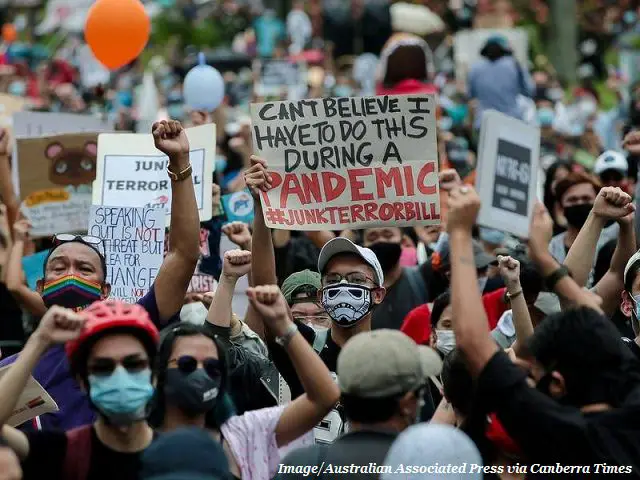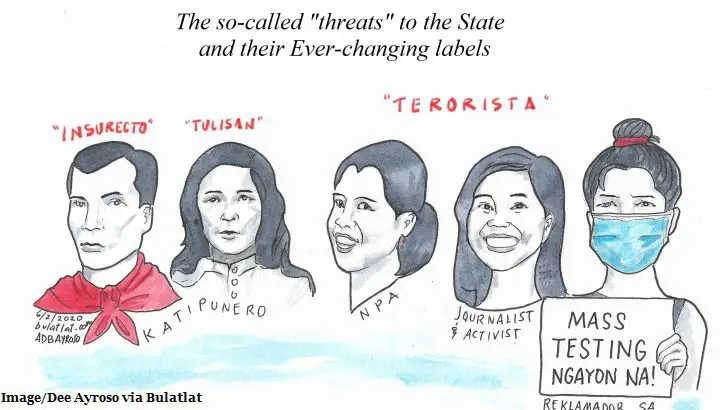On July 3, 2020, the President of the Philippines Rodrigo R. Duterte signed the Anti-Terrorism Act of 2020 known as the Republic Act No. 11479. This Act intends to inhibit, outlaw, and punish terrorism in the Philippines (1). In other words, the Anti-Terrorism Act of 2020, in general, would curtail any actions and measures that promote terrorism.
What Covers the Anti-Terrorism Act of 2020
The definition of terrorism as prescribed by the Anti-Terrorism Act of 2020 would mean the following (1):
-
- Developing, manufacturing, possessing, acquiring, transporting, supplying, or using weapons; and
- Engaging in acts intended to cause death or serious bodily injury to any person or endangers a person’s life;
- Engaging in acts intended to cause extensive damage or destruction to a government or public facility, public place, or private property;
- Engaging in acts intended to cause extensive interference with, damage, or destruction to critical infrastructure;
- Releasing dangerous substances or causing fire, floods or explosions when the purpose is to intimidate the general public, create an atmosphere to spread a message of fear, provoke or influence by intimidation the government or any international organization, seriously destabilize or destroy the fundamental political, economic, or social structures in the country, or create a public emergency or seriously undermine public safety
Exclusion of Safety Measure against Illegal Arrest
This Anti-Terrorism Act of 2020 eliminates a section under the Human Security Act (HSA) of 2007. It removes the duty to safeguard against the wrongful charge and detention of the accused. Under HSA, any person would receive compensation for wrongful detention. The police agency or the Anti-Terrorism Council (ATC) that brought the sanctions would provide financial obligations.”(2)
The Establishment of the Anti-Terrorism Council
Under this Act, the law can form appoint an organized body by the president, the Anti-Terrorism Council (ATC). This ATC would designate the persons to arrest targets “terrorists.” These arrested persons would stay up to 24 days without any compensation for wrongful imprisonment. In contrast, the accused persons could file a case against those who wrongfully charged them.

Warrantless Arrest
Based on this law, ATC and its associates could arrest their targets without a judicial warrant of arrest. The law, as well, could allow ATC and its associates to detain their targets for 14 days plus an extension for 10 more days under surveillance for 60 days. Moreover, this law can detain targets when usual criminal charges require further technical considerations. Lastly, the law does not have any obligation to provide the remuneration of the targets for the inconvenience they caused.
In conclusion, President Rodrigo Duterte signed the Act on July 3, 2020, to replace the Human Security Act of 2007. Howard Calleja, the De La Salle brothers led by former education secretary Brother Armin Luistro and other civic groups stood to challenge the law in the Supreme Court.
References
-
- https://www.officialgazette.gov.ph/downloads/2020/06jun/20200703-RA-11479-RRD.pdf
- https://thediplomat.com/2019/10/the-trouble-with-the-new-anti-subversion-act-push-for-the-philippines/
- https://www.bulatlat.com/tag/human-security-act-anti-terrorism-law/
- https://www.canberratimes.com.au/story/6791657/philippine-protest-slams-anti-terror-bill/?cs=14232#gsc.tab=0

